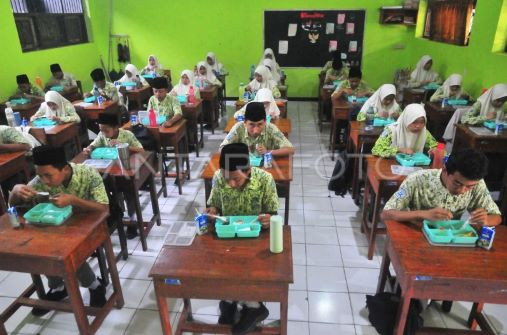Popular Reads
Top Results
Can't find what you're looking for?
View all search resultsPopular Reads
Top Results
Can't find what you're looking for?
View all search resultsFlypaper effects: The overlooked cost of free meals program
Parents in low-income households may reduce the child's food consumption at home, knowing the child is receiving free nutritious meals at school.
Change text size
Gift Premium Articles
to Anyone
T
here is no such thing as a free lunch, even in the case of the free nutritious meals program, which president-elect Prabowo Subianto will realize when he takes office in less than three weeks.
While the promise of free meals for all schoolchildren has been met with enthusiasm—particularly among low-income families—an underlying cost may be overlooked. This cost is potentially borne by the very children who are the intended beneficiaries of the program.
As the free meals program moves from pilot projects toward wider implementation across Indonesia, a careful analysis of the cost-benefit matrix is critical, particularly in considering intrahousehold flypaper effects when evaluating the program’s effectiveness.
Ideally, without flypaper effects, a government transfer to a specific household member—in this case, a child—would stick to that individual, without altering the household's existing resource allocation toward the child.
Intrahousehold flypaper effects refer to at least two possible scenarios. First, parents in low-income households may reduce the child's food consumption at home, knowing the child is receiving free meals at school. In such cases, the net nutritional benefit to the child from the free meals program may be diminished.
Despite receiving a nutritious meal at school, a simultaneous reduction in food intake at home could result in a suboptimal overall nutritional outcome for the child.
Second, the program could unintentionally trigger a reallocation of household budgets away from the child’s nutrition. For instance, if the free meals program increases school fees due to budgetary shifts in other educational components—such as construction or renovation—the financial burden could compel low-income parents to pull their children out of school altogether. This drop in school attendance would not only reduce the intended nutritional benefit, but could also weaken other potential positive effects of the program, such as improved academic performance.



















